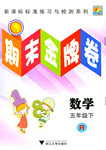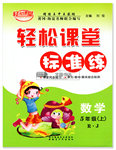
As less people choose to make sugar paintings, the traditional Chinese folk craft might have become a 1. (distance) memory in some ways. However, a 38-year-old craftsman, Li Jiangzhong, is committed to 2. (keep) the art of sugar painting alive.
Li worked as a miner for more than ten years. After 3. mine closed down, Li turned 4. housing decoration, until he 5.(force) to give that up due to a finger injury. Earlier this year, he discovered sugar painting, something he really had an interest in.
Since there was no sugar painting craftsman in his village, he studied by 6. (he) through large quantities of videos and information on the Internet. Li loved painting when he was young, and he found it easy to learn the skill in sugar painting. He soon mastered the skill and could make a 7.(vary) of sugar paintings. A sugar painting is made with 8.(melt) brown or white sugar. Craftsman 9.(normal) paint animals and flowers on a stone board with the syrup(糖浆). When the sugar cools down, 10. appears is a piece of sugar art.
 期末金牌卷系列答案
期末金牌卷系列答案 轻松课堂标准练系列答案
轻松课堂标准练系列答案科目:高中英语 来源:2017年全国普通高等学校招生统一考试英语(北京卷正式版) 题型:单项填空
______ birds use their feathers for flight, some of their feathers are for other purposes.
A. Once B. If C. Although D. Because
查看答案和解析>>
科目:高中英语 来源:湖北省襄阳市2017届高三下学期第二次模拟考试英语试卷 题型:书面表达
请根据下图写一篇 100-120个词的短文。你的短文应包括下列要点:
1.简要描写图画的内容。
2.说明图画含义。
3.谈谈你的看法。参考词汇:container n.空器

____________________________________________________________________________________________
____________________________________________________________________________________________
____________________________________________________________________________________________
____________________________________________________________________________________________
____________________________________________________________________________________________
____________________________________________________________________________________________
_______________________________________________________________________
查看答案和解析>>
科目:高中英语 来源:内蒙古赤峰市2016-2017学年高二下学期第二次月考英语试卷 题型:阅读理解
When it was announced that Patrick Modiano had won the Nobel Prize in Literature on Oct.9, the Swedish Academy had not yet managed to reach the writer himself to tell him the news. as the Telegraph put it, “It was a curious case of missing personhood in an author whose career had been spent in searching others, within the confines (界限) of a single city.”
Though the 69-year-old French author has had a successful writing career, only six of his books have been translated into English. One reason for this might be that “Modiano’s storylines are as slim as the books themselves”, said the BBC.
While most of Modiano’s works don’t run for hundreds of pages, they explore serious subjects. The author’s signature themes are Germany’s occupation during World War II and the evolution of Paris over the past century.
Modiano’s life has been greatly affected by Nazi Germany’s occupation during the war, and his family’s connections to it. According to New York-based newspaper Forward, his father survived the war dishonorably. When Paris’s Jews were rounded up for deportation(驱逐)to concentration camps, the businessman did not join them but spent the time making money from deals with Nazis on the black market.
“The novelist has a duty to record the traces of the people who were made to disappear,” French writer Clemence Boulouque, also an expert in Jewish Studies, told The New York magazine.
In his more than three dozen novels, Modiano has returned again and to the same themes: Jewishness, the Nazi occupation, and loss of identity.
Paris is another recurring(重复的)theme in Modiano’s works .Most of his novels are set in the city , from the rich parts of downtown Paris to more remote suburbs where the characters try to live anonymous protect lives.
Anne Ghisoli, the director of Librairie Gallimard, a bookstore in Paris, concluded, “Modiano is a master of writing on memory and occupation, which haunt(萦绕)and inform his works. He is a chronicler(年代记录者)of Paris ,its streets, and its present.”
1.According to the article, Patrick Modiano ____________.
A. likes to involve his his memories in his writing
B. usually writes stories with disappearing people
C. is so popular that post of his works are on sale
D. didn’t suffer much during World War II thanks to his father
2.The underline word “slim” in Paragraph 2 is closest in meaning to ____.
A. thin B. hard
C. simple D. dull
3.Which of the following can be the best title?
A. French Author’s Surprise
B. Modiano’s Life and His Books
C. World War II and the Nazis
D. Memory Author Wins the Nobel
查看答案和解析>>
科目:高中英语 来源:湖南省长沙市2017届高三高考模拟试卷(二)英语试卷 题型:阅读理解
“How’s it going? ” I ask the barista(服务生). “How’s your day been?”
“Ah, not too busy. What are you up to?”
“Not much. Just readin. ”
This,small talk, is one of the key rituals(规矩)of American life. It has taken me only a decade to master.
I immigrated to the United States in 2001, for college. I brought only my Indian experience in dealing with shopkeepers and tea sellers. In Delhi, where I grew up, when doing business, people don't ask each other how the other's day has been. They might not even smile. The customer doesn't tremble before complaining about how cold his food is. Each side believes the other will cheat him.
“God, Mahajan, you’re so rude to waiters!” Tom, an American friend, said, laughing, after he watched me ordering food at a restaurant, in the West Village, years ago. Considering myself a mild and friendly person, I was surprised. Tom always asked servers how they were doing or praised their shirts or made jokes about the menu. At that time, this seemed dishonest to me. Did he really like what they were wearing?
American life is based on a principle that we like one another but won’t violate one another’s privacies. This makes it a land of small talk. Two people greet each other happily, with friendliness, but might know each other for years before asking basic questions about each other’s backgrounds. The opposite is true of Indians. At least three people I’ve sat next to on planes to and from India have asked me, within minutes, how much I earn as a writer (only to turn away in disappointment when I tell them).
Living in Brooklyn and then in Austin, Texas. I made coffee shops the places of my movements. Meeting the same baristas day after day produced context, and I got practice. I was beginning to fit in. It felt good and didn’t seem fake anymore.
1.Which of the following is TRUE according to the passage?
A. The author takes pride in everything of his homeland.
B. The author still thinks the American way of treating strangers is not sincere.
C. The author finally got used to small talk after a lot of practice in America.
D. It only took the author a short time to learn the real ritual of American life.
2.What do people in the US tend to do in a restaurant?
A. They have friendly small talk with the servers.
B. They ask if the servers are satisfied with their pay.
C. They complain about the food and service straightforwardly.
D. They make objective comments on the servers’ clothing.
3.What do we know about Indians according to Paragraph 7?
A. Indians don’t like each other.
B. Indians live in a land of small talk.
C. Indians show little respect for others; privacy.
D. Indians know little about their friends’ backgrounds.
4.What might be the best title of this passage?
A. A Rude Indian in America
B. Small Talk and Great Friendship
C. My Struggle with American Small Talk
D. Cultural Differences between Countries
查看答案和解析>>
科目:高中英语 来源:四川省2017届高三下学期第一次模拟考试英语试卷 题型:阅读理解
On Christmas Eve, 1944, my grandmother urged my uncle, then 12 years old, to slip out of the concentration camp where they were imprisoned near 15 miles east of Vienna to go to Deutsch-Wagram. “People are charitable around Christmastime,” Grandma Lili said to her son, Gyuri. “Ask for some food. Anything they can spare. Tell them that we’re on the edge of starvation. Tell them that your 3-year-old sister can not get off the bed because she’s outgrown her shoes.”
In the dark of that night, Gyuri secretly left the camp and walked nearly four miles to Deutsch-Wagram, the closest town. He happened upon a house and knocked on the front door. A woman opened that door. She was probably alone, her man far away, fighting in the war, her children asleep in their beds. The 12-year-old pieced together in German exactly what his mother had told him to say.
“Come back tomorrow," whispered the woman. The next day, my uncle returned. The woman opened the door with a smile. She piled his hands with bread, clothing, a pair of shoes that her child had outgrown and a pair of socks. The woman had knitted warm socks for my mother. After putting on the socks and shoes that fit, my mother got off the bed in delight. Her ragged shoes were passed on to a younger child who was also living in the camp. They shared their unexpected harvest with the entire camp. It was a quiet celebration of human kindness around Christmastime.
In April 1945, my mother, uncle and grandmother were liberated. And it was those very socks and shoes that my mother wore as she walked some 28 miles over two days to Bratislava on her walk to a new life.
To the unknown giver, I thank you. In the desperation of a cold and snowy land, when many hearts were closed and death was more likely than life, especially for Jews, you gave them hope and comfort.
1.What did Gyuri manage to do on Christmas Eve?
A. Get permitted to go out.
B. Receive food and clothing.
C. Express what his family needed.
D. Celebrate Christmas in the camp
2.Why does the author mention shoes so many times?
A. To prove the truth of the story.
B. To help the development of the story.
C. To attract readers’ attention to the story.
D. To make clear the background of the story.
3.What feeling did the author write the text with?
A. Desperation. B. Gratefulness.
C. Excitement. D. Sorrow.
4.What is the passage mainly about?
A. Light in darkness. B. Peace to common people.
C. Courage in face of danger. D. The influence of Christmas.
查看答案和解析>>
科目:高中英语 来源:福建省罗源市2016-2017学年高一6月月考英语试卷 题型:完形填空
My friend Tim came from a big family. His father was an alcoholic and died very young and his mother was unable to ____ the family. Unfortunately, the children were ____ and placed in different foster homes.
Tim dropped out of school and did nothing to ____ himself. He eventually went through a divorce. Tim’s brother, ____ experiencing the same childhood, ____ himself for a degree and got a well – paid job. He possessed a(n) ____ home.
Both brothers gave a ____ answer when asked why their lives ____ the way they did. They said. “You’d live this way too if you had a ____ like mine. ” Neither of the brothers could ____ his past, but one of them adjusted his ____.
It doesn’t take much to find an ____ whether that is the family background, the ____ of education, or that we live in the wrong city, or do not know the right people. Actually, each of these problems has a ____.However, if you believe that there is nothing you can do to turn your life around, then you won’t be able to change your life for ____.
If you really ____ to turn your life to a new course, to set your sail to a different port, it is a matter of ____. If you choose to move ____, the easiest way is to find a solution to your today’s situation. Solutions are there if you want to ____ them. Sure, it may take some hard work. But if you do not, then you will never have a different or happy life. Do not ____ yourself by finding an excuse, but restrict your self by refusing to have an excuse.
1.A. encourage B. support C. satisfy D. expand
2.A. selected B. grouped C. separated D. gathered
3.A. further B. express C. mistake D. pardon
4.A. as B. since C. before D. although
5.A. treated B. educated C. controlled D. behaved
6.A. ordinary B. temporary C. wonderful D. special
7.A. strange B. precise C. firm D. similar
8.A. turned out B. broke out C. turned up D. broke up
9.A. divorce B. childhood C. school D. job
10.A. ignore B. describe C. recall D. change
11.A. sail B. post C. pace D. taste
12.A. expression B. example C. error D. excuse
13.A. future B. lack C. focus D. need
14.A. price B. reason C. solution D. reward
15.A. the most B. the better C. the least D. the worse
16.A. desire B. refuse C. forget D. regret
17.A. time B. money C. choice D. fact
18.A. off B. in C. backward D. forward
19.A. wait for B. go after C. ask for D. look after
20.A. limit B. push C. enjoy D. calm[
查看答案和解析>>
科目:高中英语 来源:2017年全国普通高等学校招生统一考试英语(全国卷3正式版) 题型:完形填空
A Toronto man is offering a free round-the-world air to the right woman. But __41_ apply. You must be named Elizabeth Gallahgher and have a Candian ___42___ .
Jordan Axani, 28, said he and his then girlfriend, Elizabeth Gallagher, booked heavily discounted round-the-world air tickets in May, but their 43 ended and he did not want her ticket to 44 . The ticket had a strict no-transfer(不可转让) 45 , but since passport information was not required when 46 , any Canadian Elizabeth Gallagher can
47 it.
“I just want to see the ticket go to good use and for someone to 48 a lot of joy,” said Axani. He posted his 49 on a social networking website, and received thousands of e-mails, including thirty from actual Elizabeth Gallagbers with the 50 passports, “More 51 , there are hundreds of Canadians who are interested in 52 their name to Elizabeth Gallagher,” Axani said. “It was absolutely out of 53 , thousands of e-mails, people around the world 54 their stories of travel.”
Axani wrote in his post that he is not 55 anything in return and that the woman who uses the 56 ticket can choose to either travel with him or 57 the ticket and travel on her own.
The 58 is scheduled to start on December 21 in New York City and continue on to Milan, Prague, Paris, Bangkok and New Delhi before 59 in Toronto on January 8. He said the 60 woman will be announced on the website and the trip will be shared online.
1.A.benefits B.deposits C.retrictions D.examinations
2.A.orgin B.passport C.accent D.firend
3.A.holiday B.marriage C.dream D.relationship
4.A.go to waste B.come to mind C. go no sale D.come into effect
5.A.policy B.order C.parment D.schedule
6.A.applying B.booking C.checking D.bargaining
7.A.use B.borrow C.choose D.buy
8.A.sacrifice B.express C.experience D.provide
9.A.answer B.advice C.offer D.comment
10.A.same B.right C.now D.real
11.A. interesting B. annoying C. satisfying D. convincing
12.A. writing B. giving C. lending D. changing
13.A. touch B. question C. date D. control
14.A. admiring B. advertising C. sharing D. doubting
15.A. leaving B. looking for C. losing D. dealing with
16.A. leaving B. looking for C. losing D. dealing with
17.A. return B. take C. reserve D. hide
18.A. interview B. program C. trip D. meeting
19. A. ending B. calling C. repeating D. staying
20.A.honored B. lovely C. intelligent D. lucky
查看答案和解析>>
科目:高中英语 来源:吉林省2016-2017学年高一下学期期中考试英语试卷 题型:阅读理解
An eight-year-old girl heard her parents talking about her little brother. All she knew was that he was very sick and they had no money. Only a very expensive operation could save him now and there was no one to lend them the money.
When she heard her daddy say to her tearful mother, “Only a miracle can save him now,” the little girl went to her bedroom and pulled her money from its hiding place and counted it carefully.
She hurried to a drugstore (药店) with the money in her hand.
“And what do you want?” asked the salesman.
“It’s for my little brother,” the girl answered. “He’s really, really sick and I want to buy a miracle.”
“Pardon?” said the salesman.
“My brother Andrew has something bad growing inside his head and my daddy says only a miracle can save him. So how much does a miracle cost?”
“We don’t sell a miracle here, child. I’m sorry,” the salesman said with a smile.
“Listen, if it isn’t enough, I can try and get some more. Just tell me how much it costs.” said the girl.
A well-dressed man heard it and asked, “What kind of a miracle does your brother need?”
“I don’t know,” she answered with her eyes full of tears. “He’s really sick and mum says he needs an operation. But my daddy can’t pay for it, so I have brought all my money.”
“How much do you have?” asked the man.
“$ 1.11, but I can try and get some more,” she answered.
“Well, what luck,” smiled the man. “$ 1.11, the price of a miracle for little brother.”
He took up the girl’s hand and said, “Take me to where you live. I want to see your brother and meet your parents. Let’s see if I have the kind of miracle you need.”
That well-dressed man was Dr Carlton Armstrong, a famous doctor. The operation was successful and it wasn’t long before Andrew was home again.
How much did the miracle cost?
1.What was the trouble in the little girl’s family?
A. Miracle was hard to get in the drugstore.
B. They were poor and no one can lend them money.
C. Nothing could save her brother.
D. Her brother was badly ill and her family couldn’t afford the operation.
2.In the eye of the little girl, a miracle might be _______.
A. something interesting B. something beautiful
C. some useful medicine D. some good food
3.What made the miracle happen?
A. The girl’s love for her brother. B. The girl’s money.
C. The medicine from the drugstore. D. Nobody can tell.
4.From the passage we can infer that _______.
A. the salesman didn’t sell miracle to the girl
B. a miracle is sure to happen if you keep on
C. the little girl is lovely but not so clever
D. Andrew was in fact not so sick as they had thought
查看答案和解析>>
湖北省互联网违法和不良信息举报平台 | 网上有害信息举报专区 | 电信诈骗举报专区 | 涉历史虚无主义有害信息举报专区 | 涉企侵权举报专区
违法和不良信息举报电话:027-86699610 举报邮箱:58377363@163.com